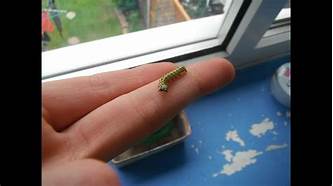Can You Have a Jellyfish as a Pet?
Jellyfish are fascinating creatures that can make for unique and captivating pets. Many people are interested in keeping jellyfish in aquariums, but there are a number of factors to consider before making this decision.

Jellyfish Care
Jellyfish have very specific care requirements. Some of the most important things to consider include:
- Water quality: Jellyfish require pristine water conditions. The water must be clean, clear, and free of toxins. It is also important to maintain the proper pH and salinity levels.
- Lighting: Jellyfish need low light levels. Bright light can stress them out and make them more susceptible to disease.
- Feeding: Jellyfish are predators and must be fed live food. This can include brine shrimp, mysis shrimp, and copepods.
- Aquarium size: Jellyfish need a spacious aquarium with plenty of room to swim. A 10-gallon aquarium is the minimum size for a single jellyfish, but larger aquariums are recommended for multiple jellyfish.
- Tankmates: Jellyfish cannot be kept with other fish or invertebrates. They will sting and eat any tankmates that they come into contact with.
Jellyfish Species
There are many different species of jellyfish that can be kept in aquariums. Some of the most popular species include:
- Moon jellyfish: Moon jellyfish are one of the most common species of jellyfish kept in aquariums. They are relatively easy to care for and can reach a size of up to 10 inches in diameter.
- Compass jellyfish: Compass jellyfish are another popular species of jellyfish for aquariums. They are known for their distinctive compass-shaped markings. Compass jellyfish can reach a size of up to 8 inches in diameter.
- Box jellyfish: Box jellyfish are one of the most dangerous species of jellyfish in the world. They are responsible for a number of deaths each year. Box jellyfish are not recommended for aquariums, as they are extremely difficult to care for.
Jellyfish Dangers
Jellyfish are venomous creatures. The sting of a jellyfish can cause a variety of symptoms, including pain, swelling, and nausea. In some cases, a jellyfish sting can be fatal. For this reason, it is important to take precautions when handling jellyfish. Always wear gloves and eye protection when working in an aquarium with jellyfish. Never put your hands in the water with jellyfish, and never allow children or pets to come into contact with jellyfish.
Conclusion
If you are considering keeping jellyfish as pets, it is important to do your research and understand the challenges involved. Jellyfish are not easy to care for and require a lot of specialized equipment and knowledge. However, if you are willing to put in the time and effort, keeping jellyfish can be a rewarding experience.
Declaration: All article resources on this website, unless otherwise specified or labeled, are collected from online resources. If the content on this website infringes on the legitimate rights and interests of the original author, you can contact this website to delete it.



